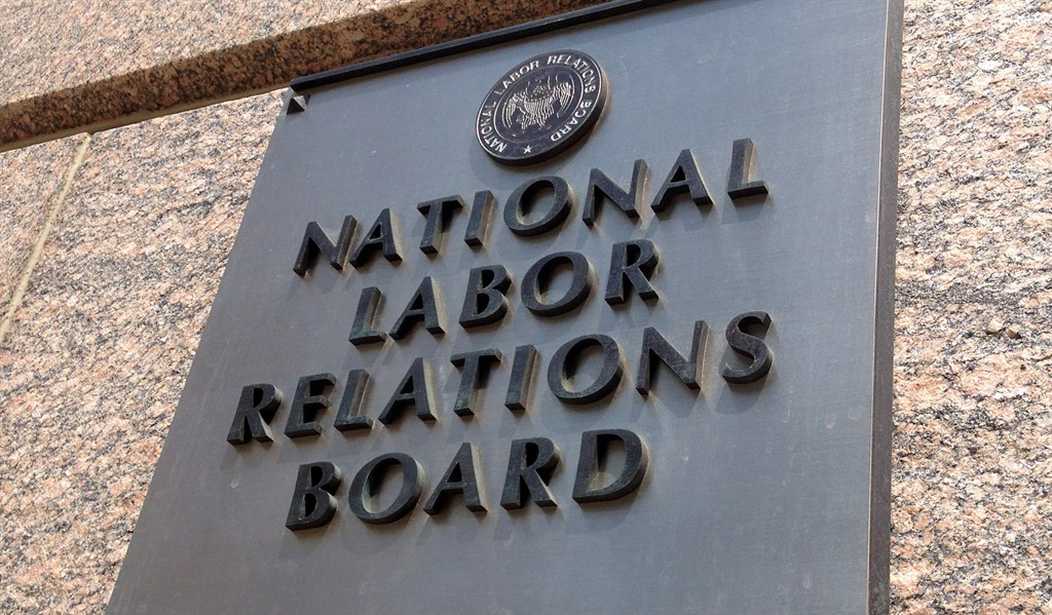The National Labor Relations Board is having a tough time lately. It keeps working on behalf of unionists but corporations are increasingly pushing back by arguing that the NLRB itself is in violation of the US Constitution.
Employers are increasingly turning to the US Constitution for ammunition to disrupt the work of the National Labor Relations Board, as companies have notched early victories in their challenges to fundamental aspects of the agency.
The NLRB faces constitutional arguments in myriad settings, including in-house unfair labor practice proceedings, district court lawsuits, appellate review of board and lower court rulings, and as a defense against an agency bid to get a court to force a company to bargain with a union...
“While there are live questions having to do with something as fundamental as the constitutionality of the agency’s structure, defense lawyers and employers really are in a position where they have to raise them until they’re resolved,” said Michael Duff, a law professor at St. Louis University and former NLRB attorney. “Even if the arguments seem borderline ridiculous, they have to do it.”
Case in point, last month Amazon argued that the NLRB's structure violates the constitution in a case involving two workers at an Atlanta warehouse.
The workers, based at the ATL6 Amazon warehouse on the outskirts of Atlanta, filed charges in 2023. The NLRB’s regional office issued a complaint against Amazon after finding merit in the charges. A court hearing is scheduled for October.
Amazon, which denies the allegations, is seeking to dismiss the complaint on constitutional grounds...
The NLRB’s “concurrent exercise of legislative, executive and judicial power in this proceeding violates the separation of powers established by the United States Constitution,” the Amazon attorneys claimed, “and the guarantee of due process found in the Fifth Amendment to the United States Constitution.”
Such arguments were once considered conservative fringe arguments, according to an attorney advising the Amazon workers and United for Respect, a non-profit labor advocacy group. “I think this is part of a broader effort on the part of conservative voices in the country – retail employers specifically – attempting to dismantle the administrative state and attacking the agencies tasked with protecting workers rights,” said Bianca Agustin, co-director of United for Respect. “This is a concerted effort on the industry’s part because of the rise in activism at the worker level.”
In short, corporations are fighting back and appear to be getting some wins. Last week, an effort to move a Space X challenge to the NLRB out of Texas and into California was blocked.
SpaceX's challenge to the structure of the National Labor Relations Board will remain in Texas federal court for now, after a U.S. appeals court overturned a decision that would have transferred the rocket maker's lawsuit to California.
A 5th U.S. Circuit Court of Appeals panel in a two-sentence order, opens new tab on Friday vacated a July decision by U.S. District Judge Rolando Olvera refusing to reconsider an earlier ruling transferring the case from his Brownsville, Texas, court to Los Angeles.
But the first big win in this ongoing battle is already in the pipeline. National Review reports that is coming soon.
The district Court stopped short of finding the National Labor Relations Act unconstitutional, only issuing a preliminary injunction regarding the NLRB (which the act created). But the court made it clear that such a holding will be coming within the next few months. When a law is found unconstitutional, a court has two options: Carve out the law’s unconstitutional portions while upholding the rest, or overturn the law entirely. The district court wasn’t shy about what it plans to do: “There is no appropriate way to sever any of the removal protections to remedy the constitutional problems with the NLRB’s structure.” In other words, the National Labor Relations Act is doomed, at least within the territory covered by the court’s jurisdiction...
The Fifth Circuit Court of Appeals would quickly take up the case, potentially extending the act’s nullification and likely forcing the Supreme Court to act. If the Supreme Court agreed with the original district court, Congress would have little choice but to amend the act and remedy its constitutional defects. Absent congressional action, states would be responsible for deciding how to regulate private-sector labor relations.
Similar to the end of Roe, the lack of an operational federal NLRA would return the issues to the states. Of course Democrats would seek to revise the act and reconstitute the NLRB, but they've sought to pass a national version of Roe also and it hasn't happened, at least not yet.
As for the NLRB, their general counsel, Jennifer Abruzzo, has previously commented on these cases.
“There is no way we are going to succumb to the pressures imposed in addressing challenges and defending the constitutionality of our agency’s structure,” Abruzzo said in response to similar arguments against the NLRB made by SpaceX, Trader Joe’s, Amazon, Starbucks and Energy Transfer during a panel with the Roosevelt Institute in April.
They can keep fighting these arguments for now, but once this goes to the Supreme Court it could be taken out of their hands.








Join the conversation as a VIP Member